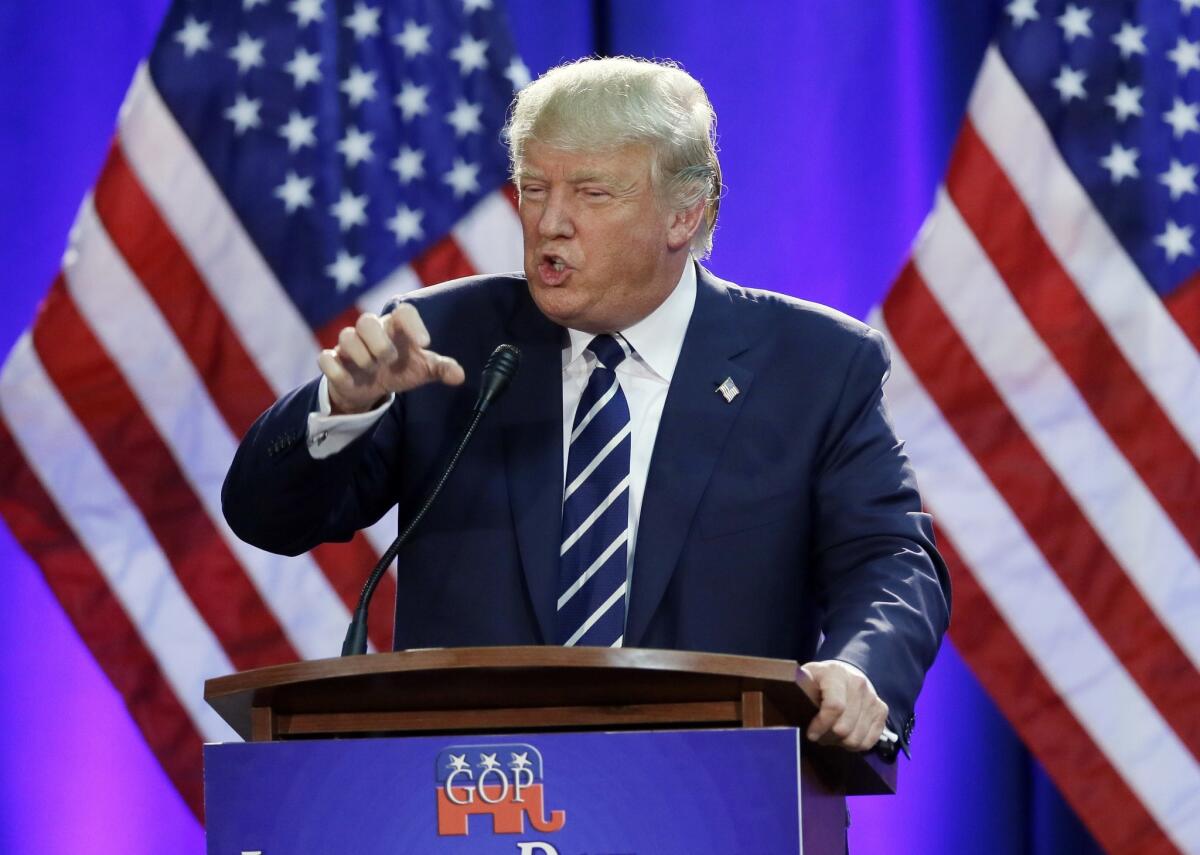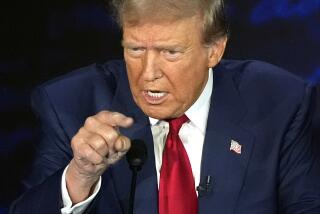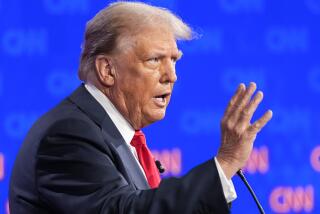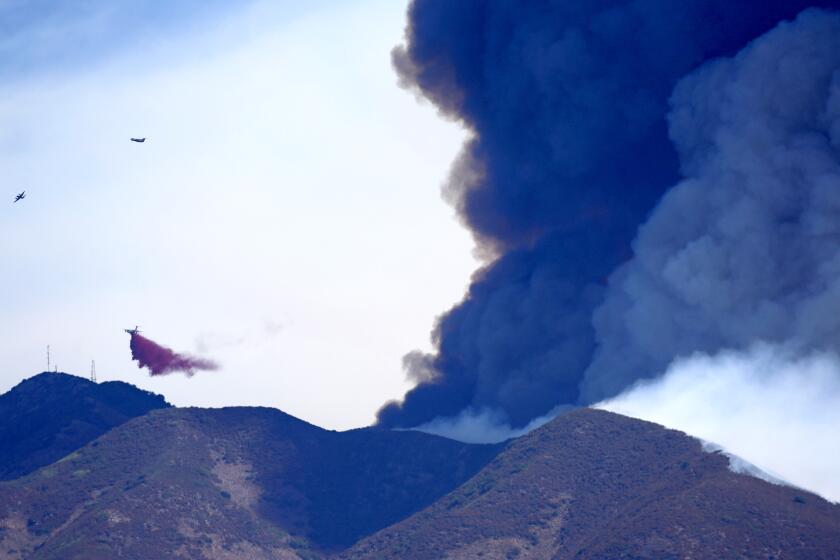Opinion: What the polls really say about Donald Trump, and the GOP nomination fight

Republican presidential candidate Donald Trump addresses a GOP fundraising event Tuesday in Michigan. While he’s leading in the polls, most Republicans say they would prefer someone else to be president.
On one level, it has been entertaining to watch Donald Trump’s scorched-earth approach to seeking the Republican presidential nomination. There hasn’t been such a high-profile, abjectly offensive political candidate in recent memory -- it’s as though Archie Bunker returned as a real person. (Maybe Trump’s candidacy is really a Norman Lear satire? Naw...)
In reality, the vast majority of registered voters haven’t bought into Trump. He has a 59% “unfavorable” rating in one poll of all registered voters, and 37% of registered Republicans (the pool that matters for the nomination) don’t like him. A separate poll before the debate and his attacks on Fox presenter Megyn Kelly found that nearly half of Republicans also believe he is hurting the party’s image (though there’s blame to go around on that front, as my colleague Patt Morrison delved into in this post).
Trump’s got the left in full-throated uproar -- “See what kind of candidate appeals to Republicans?!?!” -- while tea partiers and anti-establishment conservative Republicans see him as someone who articulates their fears and concerns in unvarnished terms.
But you can relax, America, because Trump-mania doesn’t have legs.
Sure, he’s leading in the polls of likely or registered Republican voters, but the key word there is “leading.” According to the Real Clear Politics site’s aggregate poll data, nearly four in five Republicans prefer someone else. And since Republicans have a small village of options, those “someone else” votes are scattered widely.
For a deeper understanding of the landscape, look at this recent Bloomberg poll, taken before the demolition derby that was the first Republican debate. Trump was the top choice of 21% of respondents, followed by “no first choice” with 12%, then Jeb Bush at 10% and Scott Walker at 8% and on down the conga line.
When asked who their second choice was, only 8% said Trump, which tied him with Walker and put him a point behind Bush. Note that these are incredibly small percentages, and in a poll with a margin of error of plus or minus 4.4 percentage points.
Most significantly, at this stage of a campaign, the vast majority of voters haven’t paid enough attention to offer a meaningful measurement. Who they like now hinges on name recognition, emotion and very little knowledge -- many of the candidates are still putting together platforms. So all this poll-watching is just a way to pass the time.
Why are there so many Republican contenders? The party is in disarray driven by the friction between the tea party and social conservatives, and the traditional business Republicans. Which means a lot of presidential hopefuls who, at least over coffee with their advisors, think they see a path through the chaos to victory. It’s a game of “Survivor,” and drawing single-digit support in the polls now does not necessarily mean your campaign is going nowhere. Similarly, polling more than 20% now doesn’t mean you’re going to win the nomination.
As Sean Trende points out over at Real Clear Politics, past election cycles have had similar moments (minus the Trumpeting). In 2003, early Democratic poll leaders included Joe Lieberman, Dick Gephardt and Howard Dean though John Kerry eventually won the nomination. In 2007, Hillary Rodham Clinton had the early and commanding lead until the rookie senator from Illinois derailed her. For the Republicans in that same cycle, John McCain stalled and his political obituary was written and just awaiting a posting date when he rebounded and pushed aside Rudy Giuliani, Fred Thompson, Mike Huckabee and Mitt Romney. Four years later, Rick Perry was the early favorite, according to the polls. The eventual nominee: Mitt Romney (oops).
Ultimately, the current polls are like the scores of pre-season football games. They don’t really matter (unless a candidate was itching to get into the Fox debate). What does matter is building an organization, raising money, forging a strategy with enough flexibility to respond to the unexpected, and avoiding unforced errors.
Like dissing half the voting population with one remark, the crucial Latino vote with another, and a core part of the party base with another.
Twitter: @smartelle
More to Read
A cure for the common opinion
Get thought-provoking perspectives with our weekly newsletter.
You may occasionally receive promotional content from the Los Angeles Times.











